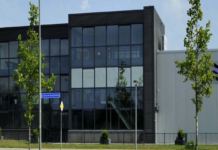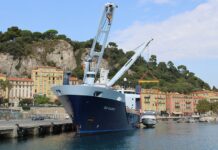
The Panama Canal hosted a high-level delegation from the International Transport Workers’ Federation (ITF) for a wide-ranging dialogue focused on sustainability, climate resilience, and labor development within the maritime sector.
The meeting, held at the Canal Administration Building, brought together senior leadership from both organizations to discuss shared challenges and goals, particularly in the face of a rapidly evolving climate landscape.
One of the key topics on the table was the Canal’s ongoing efforts to build climate resilience and reduce its environmental impact. Additionally, officials highlighted recent progress in its decarbonization strategy, including the introduction of ten new tugboats featuring hybrid propulsion systems. The move is part of a broader plan to cut greenhouse gas emissions and work toward achieving net-zero emissions by 2050.
Canal representatives also outlined the three main pillars guiding their decarbonization efforts. Beyond sustainability, both sides emphasized the need for globally coordinated responses not only to environmental pressures, but also to the evolving needs of transport workers worldwide.
The meeting included participation from Panama Canal Administrator Ricaurte Vásquez Morales, Deputy Administrator, Eng. Ilya Espino de Marotta, Vice President for Human Capital Rubén Pérez, Vice President of Operations Boris Moreno, Manager of Labor Benefits Planning Erick García, and Sustainability Manager Estela Luck.
Representing the ITF were Secretary General Stephen Cotton, Chair of the Inland Navigation Section Jacques Kerkhoff, Secretary of the Seafarers and Inland Navigation Section Fabrizio Barcellona, and Regional Secretary for Latin America and the Caribbean Edgar Díaz.





